|
User
Reviews 85
Approval 97%
Soundoffs 189
News Articles 14
Band Edits + Tags 6,645
Album Edits 12,097
Album Ratings 15726
Objectivity 73%
Last Active 07-27-22 7:57 am
Joined 12-20-10
Review Comments 854
| Discovolante's Best of: 1989 (Japan Edition)
Holy shit, it's really been almost 4 months since my last list? Huh... time flies lol. Anywho, same as always: from the beginning of the year to the end, via the Sputnik release calendar. | | 1 | 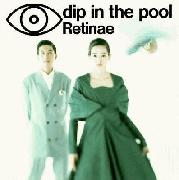 | Dip in the Pool
Retinae
After releasing two mediocre albums, new wave arthouse extraordinaires Dip in the Pool finally hit their stride in a big way with the release of their third album "Retinae". It takes the sophisti-pop sound of their previous two albums and ends up making it more commercially appealing, creating some beautiful songs in the process, with "Retinae" specifically containing "Marui Tsuki Tosuwiito", which is their best song in their catalog in my opinion. | | 2 |  | Barbee Boys
√5
Barbee Boys released their most impactful album to date in 1989 with their fifth full length "√5", an album that contains some of the greatest pure pop/rock tracks in 80s Japanese music. The album is quite literally perfection from start to finish, with it boasting their biggest single to date, "Me wo Tojite Oide yo", which went gold. While it might not sound like a big deal now, back in the 80s, going gold as a Japanese rock band was a huge deal, as it was something that only a few bands were able to at the time. Basically, if you want a reason as to why Barbee Boys are not just one of Japan's best bands of the decade but of all time, then this is the album to listen to. | | 3 |  | D'erlanger
La Vie en Rose
D'erlanger went from burgeoning metal act to new romantics from the pits of goth hell with the release of the seminal "La Vie en Rose", an album so massive in the underground not twice, not three times, but four times in total, including a major label release in 1991. Its frantic dark sound with heavy post-punk and hard rock overtones helped establish a new layer in the underground movement known as visual kei, which before was largely influenced by glam and punk rock. With "La Vie en Rose", a new breed of visual kei artists would emerge that would become some of the most iconic in the scene. Artists like Dir en Grey, Mucc, Luna Sea, Glay, Kuroyume and L'arc-en-Ciel would all be greatly influenced by this very album, and it's not a stretch to say that "La Vie en Rose" by D'erlanger might be one of the most revolutionary albums in 80s Japanese music. | | 4 |  | Dreams Come True
Dreams Come True
Dreams Come True, by the mid 90s, would become one of the most dominant Japanese pop acts of the decade. And it all started here on their 1989 debut, which, granted, didn't attract their most acclaim, is still a damn fine pop record. Straight from the bat, you can tell that the vocalist Miwa Yoshida had serious dynamic and range that made her stand out like a sore thumb among other female pop vocalists in Japanese music at the time. Heavily influenced by the freestyle and R&B dance pop stylings of late 80s Western music, this is an album that firmly put Dreams Come True on a very rosy path that would just get more bright as the years went on. | | 5 |  | New Rote'ka
Harlem Yarou
I've had this opinion for years, and I will continue to hold it until the end of time: no other Japanese punk band was ever as good as the fun-loving rambunctious New Rote'ka. 1989 would be the year that they released their debut full length, "Harlem Yarou", and it is a masterpiece. Too poppy to be Oi! and to Oi! to be pop punk, the album stands in its own ground, bridging the gap between their earlier rawer Oi! sound to their lighter, poppier sound which would come into fruition on their 1990 follow-up (which was also really, really good). Quite possibly the best Japanese punk album of all time. | | 6 | 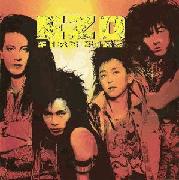 | EZO
Fire Fire
Following the surprise slight international success of their debut 1987 album, EZO returned in 1989 with the release of their second full length, "Fire Fire". It continues in the same vein as the predecessor album, except perhaps a bit more ambitious and with a slightly higher budget. It would never be as well-received commercially or critically as their previous album, although "Fire Fire" has since been regarded as a Japanese metal classic. | | 7 | 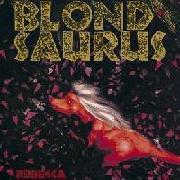 | Rebecca
Blond Saurus
Following the brilliant album "Poison" was no easy feat, but Rebecca certainly gave it their all with their follow-up album "Blond Saurus". It has a more poppy sound, akin to their releases before "Poison", except with much more substance. While it does revert back to a simpler sound, "Blond Saurus" still ends up being a Japanese pop classic based on its well done, thoroughly enjoyable lightness. | | 8 |  | The Pogo
The Pogo
Punk legends The Pogo never really had the same smash success as other bands at the time like The Blue Hearts or even New Rote'ka, but they made up for it by having an unrelentingly raw sound that captured punk's essence from its early days and relaunched it onto the Japanese masses in the late 80s. Their self-titled debut remains not only their best work, but one of the top Japanese punk albums of all time. | | 9 |  | Mimori Yusa
Harmoniodeon
Mimori Yusa is a name that never really fit into scenes. During her golden run, she probably was in the nerdy rock camp with Zabadak, but even that was too narrow of a category as Mimori Yusa sold far beyond that realm. Whatever label you wish to stick her with though, her albums are some of the greatest Japan had to offer during the crossover 1989/1990 period. Her third album "Harmoniodeon" picks up the stream greatly after the disappointing sophomoric effort "Soramimi no Oka", and is chockful of beautiful and mesmerizing tracks. The folk-pop brilliance on "Harmoniodeon" is absolutely stunning, to say the very least, and solidifies Yusa as perhaps one of Japan's greatest female songwriters. | | 10 |  | Kamaitachi
Itachigokko
Alongside "La Vie en Rose" by D'erlanger, "Itachigokko" by Kamaitachi is another release that was extremely important in the stabilization of early visual kei. Where "La Vie en Rose" is an album with a dark overtone during it, however, "Itachigokko" is very light. Youthful and rebellious in its sound, the music on Kamaitachi's innovative debut fit perfectly with Japan's youth of the time who may have been craving something different than what Barbee Boys were doing at the time or what Kazumasa Oda and Off Course did before that. A brilliant album that, while may not have been as successful as "La Vie en Rose", proved to be just as influential. | | 11 | 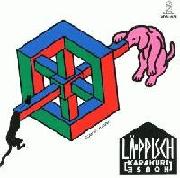 | La-Ppisch
Karakuri House
In 1989, La-Ppisch released their third album "Karakuri House", which followed the fair-too-ambitious-for-its-own-good "Wonder Book". It wisely followed a very similar formula to their magnificent 1987 self-titled debut, and as a result is pretty much cut from the same cloth, with the only difference being that "Kurakuri House" is maybe a bit less silly in tone. A great album that sort of prepared you for the wild follow-up "Make", which would put "Wonder Book" to shame in terms of ambitiousness. | | 12 |  | Zabadak
Sora Tobu Yume
Zabadak, the lords of Japanese nerd rock with their highly fantastical themes, returned in 1989 with their second full length "Sora Tobu Yume", which ends up being their most ambitious album perhaps in their catalog. While their previous album "Welcome to Zabadak" had some sprinkles of mainstream pop glittered on top of their D&D-esqued sound, "Sora Tobu Yume" took it one step further, essentially creating their most mainstream friendly album to date. The end result is one of their best albums in their vast catalog as it presents Zabadak in a very palatable way, concocting some of their finest tracks to date. | | 13 | 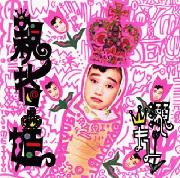 | Mami Yamase
Oyayubi Hime
Hot off the craze of "alternative idols" which was spearheaded by Jun Togawa and Mayumi Chiwaki, Mami Yamase might have seemed like a trendhopper. Indeed, just a few years before, Mami Yamase was a very clean-cut traditional pop idol. So clean-cut and traditional it was rather boring. But her 1989 rebirth with "Oyayubi Hime" is such a crazed and off-the-deep-end experience, Yamase ended up being welcome in the circle with open arms. The music of "Oyayubi Hime" is fast paced and unorthodox with a core new wave mechanism holding everything together. With music contributions from Japanese metal gods Kinniku Shojo Tai, "Oyayubi Hime" is an amazing, thrill of an album and helped give then 20-year old Yamase an official presence in the music world after two consecutive years of mediocrity and abysmal sales. | | 14 |  | Boredoms
Soul Discharge
Amid the flood of Japanese noise artists that have come and went over the years, none have ever been quite like Boredoms. Releasing their 1988 debut "Osorezan no Stooges Kyo" which has since been regarded as a muddled effort and... well, not too good, their official launching point came in 1989 with the release of "Soul Discharge", an album that catapulted Japanese noise overseas along with Merzbow. Taking cues from Aburadako and Hijokaidan, "Soul Discharge" is a dizzying array of disorienting shrieks, piercing psych and brash, unhinged hardcore punk. A total masterpiece in the genre, as well as one that was extremely groundbreaking. | | 15 |  | Baku
Bokutachi Dake no Tengoku
Baku really don't get the credit they deserve, not even in their home country. Wildly popular during their short 4 year run, Baku really helped give a fresh new face to pop punk that was never done before that I can think of. On their debut EP alone, "Bokutachi Dake no Tengoku", the line between pop and punk is so thin that it's pretty revolutionary, especially for its time. A release that pretty much birthed the style of pop punk that is verrrry heavy on the pop. | |
Mort.
06.19.22 | ahh sputniks own encyclopedia, user discovolante | parksungjoon
06.19.22 | needs
DOOM - Incompetent...
Gargoyle - Misogi
Hanatarash - 3
Masonna - Open Your Cunt
| parksungjoon
06.19.22 | and prob aburadako | discovolante
06.19.22 | I actually had Aburadako in the first version, but I decided "Itachigokko" by Kamaitachi edged it out. Almost added "Misogi" too. | parksungjoon
06.19.22 | understandable, have a great day | foxblood
06.19.22 | 11 is so good | discovolante
06.19.22 | Definitely, man. | VlacDrac
06.19.22 | Blessed list. Thank you, discovolante. | discovolante
06.20.22 | You’re very welcome, man! | rockarollacola
06.20.22 | Anthem - Hunting Time |
|
